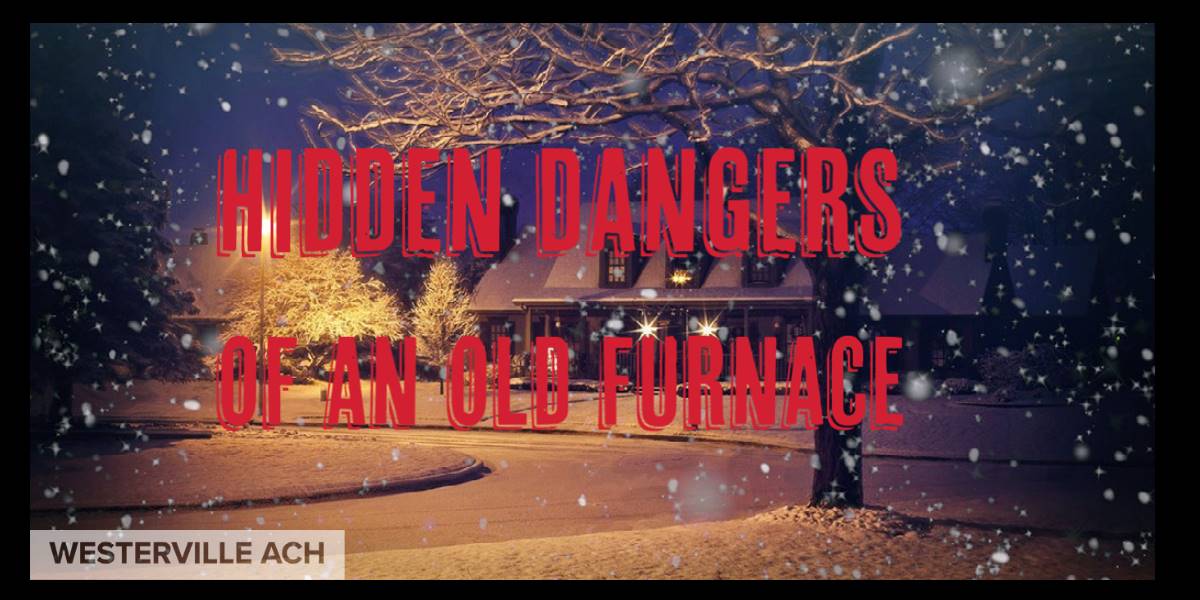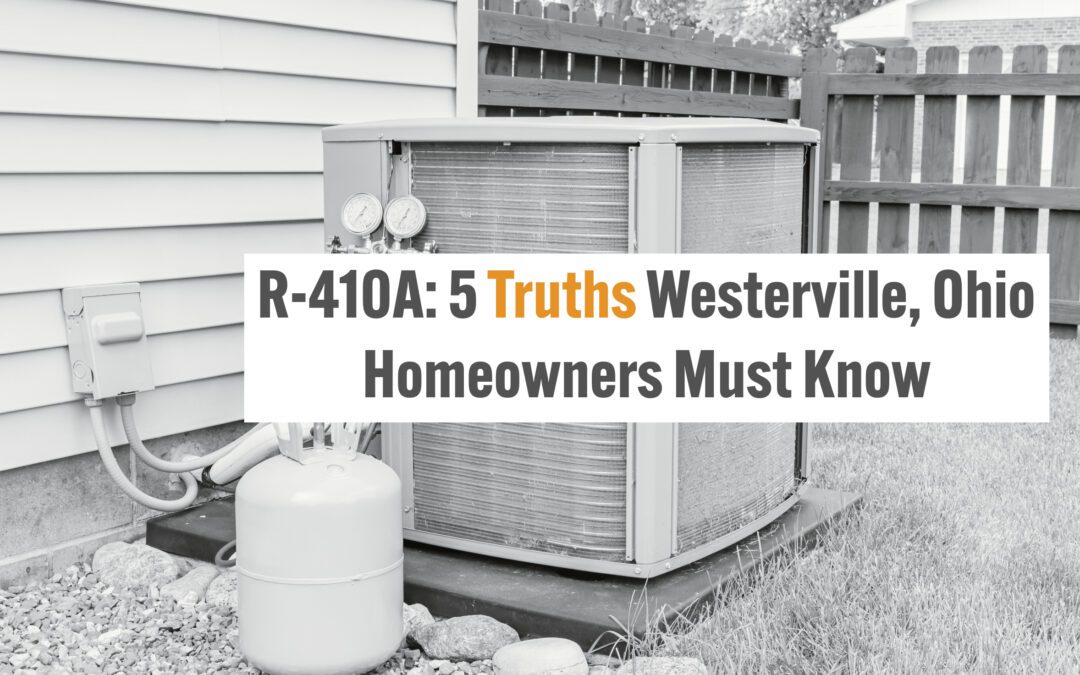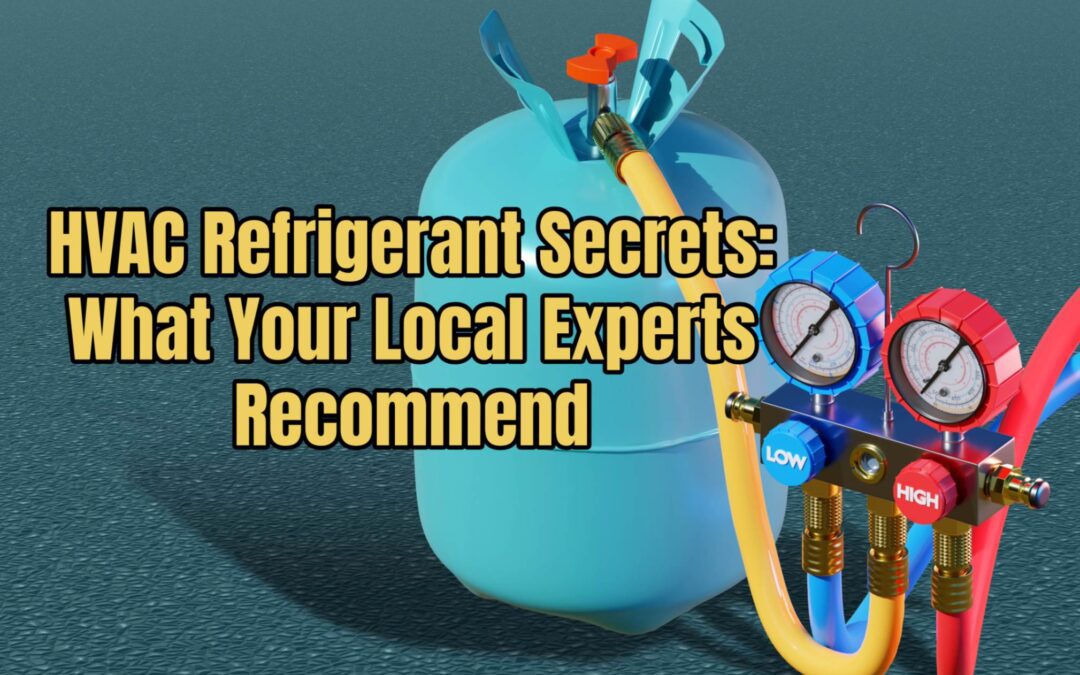Although they are durable and built to last, keeping an older home heating system in use that’s outdated not only costs more in heating costs and repairs, but it can also become a significant safety hazard as well.
To make matters worse, these hazards are more likely to happen if the heating equipment didn’t get proper maintenance over the years.
In order to help residents realize some of the hidden dangers of an old furnace and understand the warning signs to watch for, our team here at Westerville Air Conditioning & Heating put together the following:
3 Major Dangers of Old Heating Equipment
Fire Hazards
Throughout Ohio’s coldest months, our furnaces are designed to heat our homes safely and effectively. And while almost all these systems have built-in safety features to prevent fires, many of them stop working over time. Because of things like these, lifespan estimates on how long a heating system will work should be understood in the context of averages, or at best ballpark figures. Lifespan estimates don’t take into account how well the safety mechanisms work in older systems. Because of this, people need to remember all safety features are there for a purpose — to ensure safety. If your furnace is well past its lifespan, it’s a good idea to at least have its safety features checked by a certified HVAC technician near you.
Gas Leaks
Heating systems that burn natural gas are far more prone to gas leaks as they get older, as opposed to some of the newer models that use far safer and far more efficient technology. When a gas furnace begins to get older, it corrodes and can easily develop smaller leaks. Again here, while most furnaces have safety features designed to warn you, these features become unreliable in older furnaces. If you have an oil furnace, keep in mind they are no exception. Oil furnaces are prone to fuel leakages that can damage the home and cause fires under the right circumstances.
Carbon Monoxide
Over time, the safety features to prevent carbon monoxide from becoming a problem in older furnaces become unreliable. If this happens, it can easily put you and your loved ones at risk of carbon monoxide poisoning should that old system continue to get worse. Additionally, because furnaces lose efficiency as they age, this can lead to the leakage of smaller levels of carbon monoxide that might not immediately trip safety sensors. If this happens, over time the levels could cause health problems.
Common Warning Signs
As we’ve discussed above, the hidden dangers of older furnaces are serious. As such, it’s imperative every homeowner knows the signs of major trouble. It’s essential to be proactive and practice caution keeping safety first. A few of the more common warning signs of trouble include:
- Flu-Like Symptoms: Carbon monoxide is an odorless, invisible gas that people rarely notice when it leaks. However, if you or your loved ones are experiencing flu-like symptoms, it could be a sign. As such, flu-like symptoms should be taken seriously.
- Yellow Flame: The burner and pilot light flame on your furnace should always be blue and it should never be flickering. If you see the flame flickering, or if it has turned yellow, you should immediately call us because there could be carbon monoxide or gas leaking.
- Increasing Energy Consumption: If your heating costs are on the rise or if they seem higher than normal, your furnace might need to be repaired or replaced. Regardless, moving forward it’s good to monitor the money you have going out on heating month to month as this could be a sign of something amiss.
- Unusual Noises: If you hear any banging, grinding, popping, rattling, or squealing noises coming from your furnace, it’s another sign your system is heading for trouble. Another noise is the sound of a blower running constantly.
What can be done to avoid furnace problems?
With all the hidden dangers of an old furnace and their implications, a homeowner who has had the same system any number of years is likely to wonder: What can I do to avoid these hidden dangers if my furnace is getting older?
The most straightforward answer involves making sure you have a professional HVAC technician perform maintenance every heating season. Maintenance not only allows one of our friendly technicians to detect these sorts of hazards early on, but it also helps us prevent them in the first place — all the while saving you hard-earned money on energy costs while prolonging the lifespan of your heating equipment.
For more information or to schedule an appointment, call Westerville Air Conditioning & Heating today at 614-810-0075, or schedule an appointment now by clicking here!







